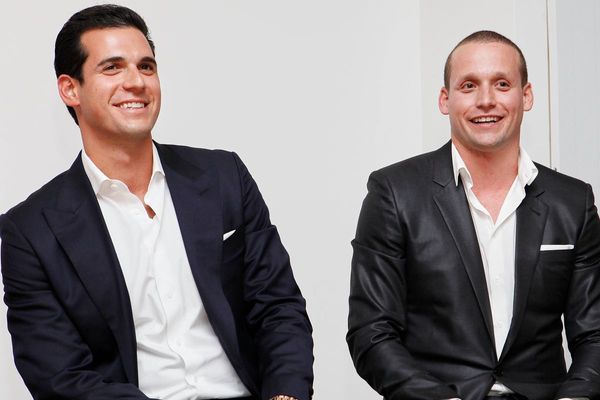
Despite a new budget with a raft of capital cost cuts, Auckland's transport agency pushes the boat out with an extra $50 million to decarbonise the city's ferry network
It’s been a tough week for many of Auckland Transport’s planned projects, with a 10 percent reduction in capital funding pushing a laundry list of other work down the agenda.
But while cycle paths and busway improvements were defunded to make room for storm recovery costs and council’s cost-cutting yearly budget, some were on the winning end of the changes.
READ MORE:
* New Zealand's role in green shipping corridors
* Government wants answers on Cook Strait cancellations
The decarbonisation of Auckland’s ferry fleet was chief among these, with an extra $50 million earmarked for a programme that includes fully electric ferries, hybrid ferries, charging infrastructure and refits of older diesel vessels.
Sixty million dollars in total is being spent on stage one of a plan that is expected to extend over a number of years, with four electric and hybrid vessels to set sail in the next three years.
Auckland Transport announced yesterday it had signed contracts with Q-West Boat Builders and HamiltonJet to build a 300-passenger hybrid-electric ferry.
It’s the fourth in a steadily-growing decarbonised fleet, the first of which should be on the water by the end of next year.
Boat builders are saying it marks a milestone for the sector as it moves towards more sustainable technologies.
HamiltonJet managing director Ben Reed said the business was thrilled to be providing power and propulsion for the vessels.
“This marks a transition in our business towards sustainable technologies and we are highly appreciative of Auckland’s global leadership in green commuter ferries," he said.
Auckland Transport programme director Nathan Cammock said decarbonising the fleet was the “low-hanging fruit” of reducing emissions across the transport network.
With ferries contributing 20 percent of emissions while representing around only 6 percent of public transport trips pre-Covid, a little change could have a lot of impact.
Is that why ferry costs were spared the axe?
Cammock said support across different agencies and ferry patronage being on the rise will both have made the project worthy.
The most recently-announced ship will cost about $20m, but with Waka Kotahi contributing around half of that cost, only $10m or so will need to be sourced from the council’s climate action targeted rate.
And it appears that ferry patronage is on its way back to what it was before the pandemic shut everything down and sent Auckland’s public transport usership into a tailspin.
Year-to-date averages in May had 366,160 total trips on Auckland Transport ships. That number peaked at 530,330 trips exactly four years earlier.
Cammock said the new vessels could help increase patronage thanks to containing advantages outside of their emissions-reducing abilities.
Vessels on the Hobsonville Point line currently have space for around 75 to 100 people, but Cammock said about 200 people could fit onto electric ferries on the line in future.
More capacity for bikes and interior storage could also attract more bike commuters, who will no longer have to keep their bikes outside by the stern where they're exposed to the salt air.
This most recently-announced vessel will be able to store 28 bikes.
It will also help to increase reliability – an issue that has been top of mind for many ferry-using Aucklanders in recent years.
Cammock said the most common reason for service cancellations was mechanical failures due to an aged fleet in need of replacement.
Since mid-2018, mechanical breakdowns have been responsible for 23 percent of cancellations on the network, excluding Waiheke trips.
He said the goal was for Auckland to have the largest electric ferry fleet in the southern hemisphere by 2030.
But while it’s good news for Aucklanders who make the jaunt across the harbour between Devonport and the city centre, those who live further afield may have longer to wait before new quieter and more environmentally-friendly boats can take them home.
Commercial routes like the Fullers360 one to Waiheke will not be serviced by the ships currently on order, although Fuller360 CEO Mike Horne did signal his support for electrified solutions.
“As a key partner in the project as well as initiating and project-managing the build, we can’t wait to see these low-emission vessels out on the Waitemata,” he said.
But 'can’t wait' may equate to wait and see, with no current plans afloat to electrify the Waiheke-bound fleet.
Colin Mitchell, CEO of boat-builders Q-West, said the 32m ferry would likely be built in his company’s facility at the Whanganui Port.
The four electric and hybrid vessels represent around a fifth of the current diesel fleet, with the plan to decarbonise the rest set for the early 2030s.
Heavy batteries mean at the moment the new ferries will be put to work on shorter routes, such as downtown to Devonport, but diesel generators aboard mean they will be able to go further if need be.
The heavy batteries will also be carbon-intensive and expensive to produce, just as is the case with the batteries used in electric vehicles.
Cammock said while there were higher up-front costs for battery-powered ferries, maintenance and fuel costs would both be lower over the years.
“What we know is that battery electric vehicles are more carbon-intensive to create, but they are less carbon-intensive to operate after a few years.”







